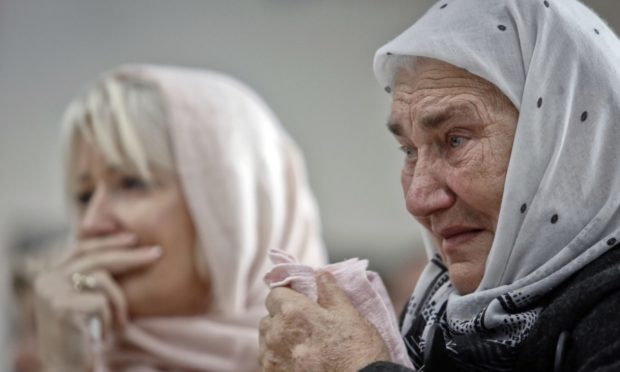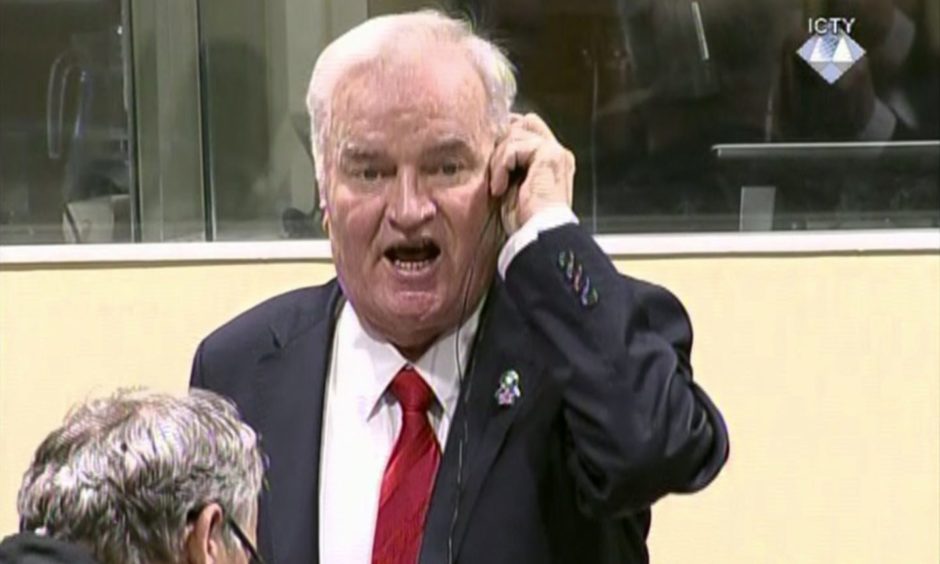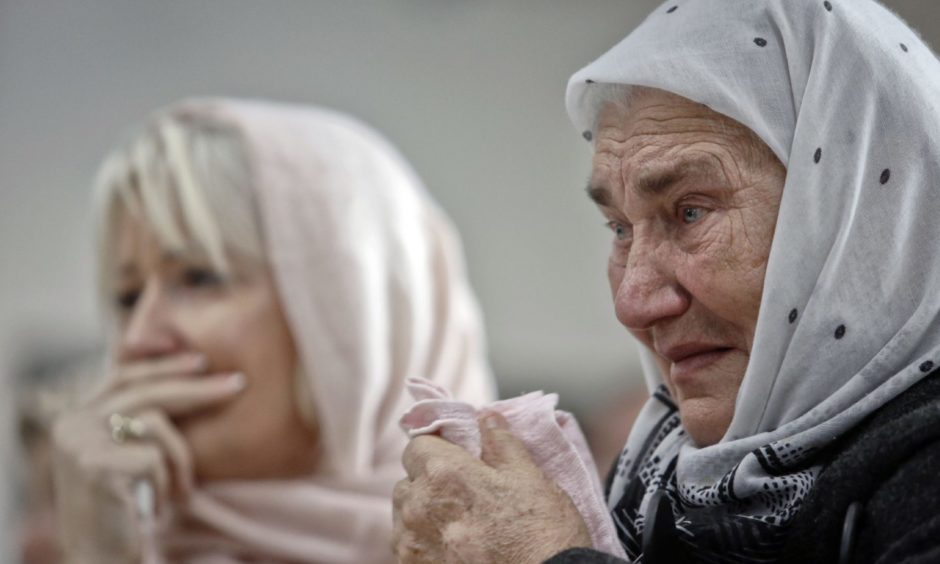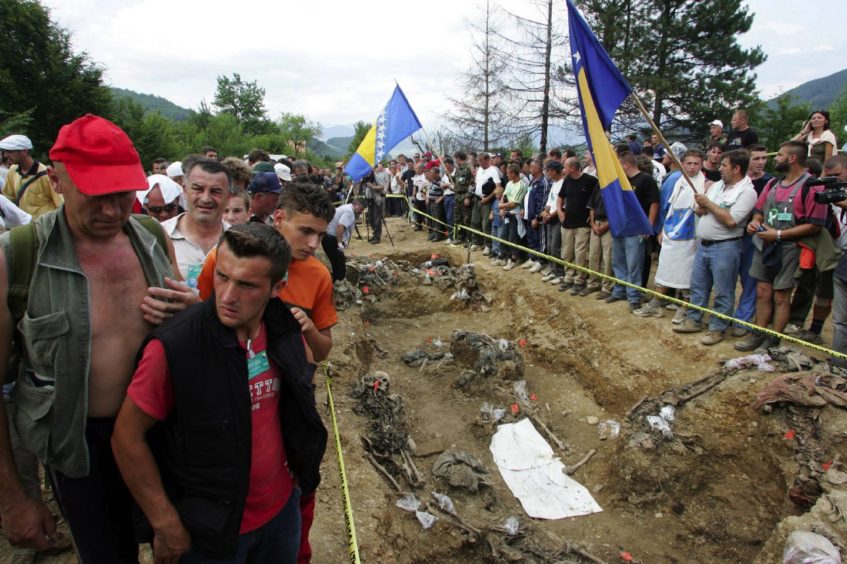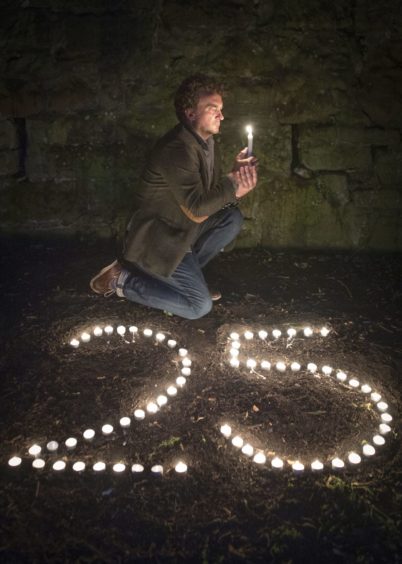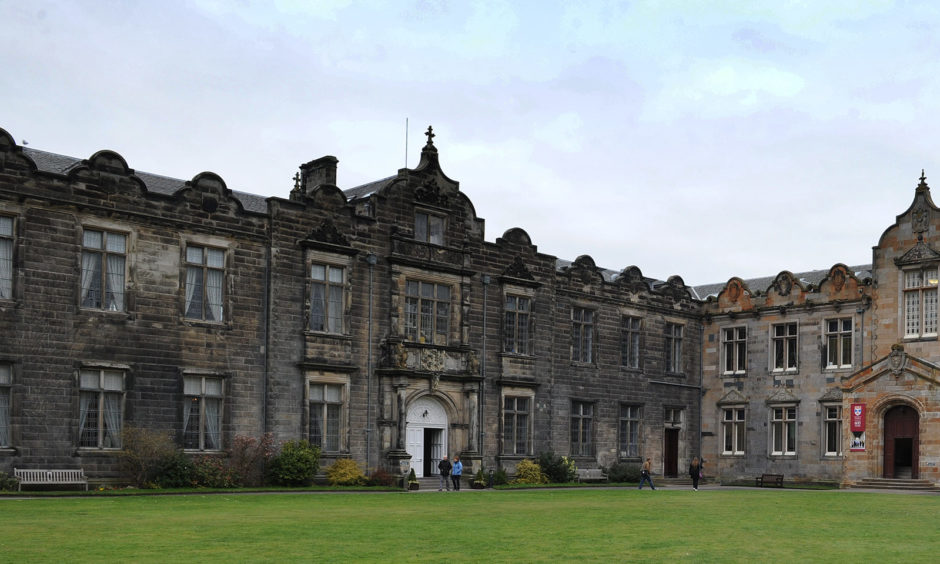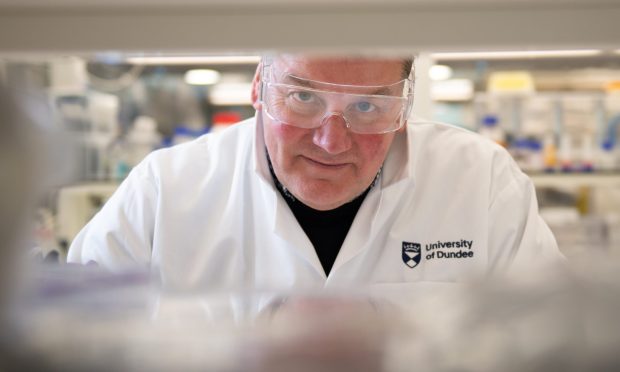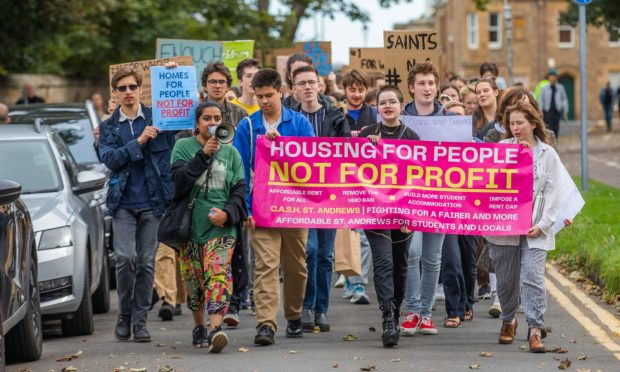Michael Alexander discovers how an ambitious St Andrews University international event is highlighting lessons from the aftermath of the 1992-95 Balkans war and the impact on global geopolitics today.
Twenty-five years ago on November 21, 1995, a peace settlement for war-torn Bosnia-Herzegovina was brokered in the USA.
US President Bill Clinton announced the deal after 21 days of seemingly deadlocked negotiation at the Wright Patterson Air Force Base in Dayton, Ohio.
The plan, known as the Dayton Accords, was agreed between the Bosnian, Serb and Croat leaders and would be enforced by 60,000 Nato troops.
The aim was to end the most brutal conflict in Europe since the Second World War, which had resulted in the deaths of more than 100,000 people – mostly civilians – and had unleashed campaigns of mass rape and genocide and left two million homeless.
Under the agreement, Bosnia would remain a single state, but most power would be devolved to two new territories – a Muslim-Croat federation and a Bosnian-Serb republic.
A central authority controlling foreign, trade and monetary policy would operate from a united capital in Sarajevo.
To mark the anniversary, St Andrews University is hosting ‘Balkans Backwards and Forwards, 25 Years After Dayton’.
Over five weeks, experts from across the globe including the Balkans are joining researchers from St Andrews to take a panoptic, systemic view of the region over the post-Cold War period, as well as to project forward 20 years.
But while 1995 represented a “high noon for western liberal triumphalism”, the convener of the ambitious online event – The Handa Centre for the Study of Terrorism and Political Violence (CSTPV)’s in-house regional expert, Dr Kurt Bassuener – said the symposium is also looking at what lessons from the region’s past and present might be applicable elsewhere.
In an interview with The Courier in the uncertain aftermath of the 2020 US presidential election, the Florida-born and raised 50-year-old, who voted for Democratic candidate Joe Biden, said his experiences in the Balkans had inadvertently helped him understand the populist undercurrents in American politics today.

“It’s fascinating that having lived in Bosnia for 11 years from 2005 until I came here in 2016 to do my PhD, I actually have a better understanding of how American politics operates now,” says the St Andrews University PhD candidate, who is also co-founder and senior associate of the Democratisation Policy Council – a Berlin-based think tank for accountable democratisation policy worldwide.
“I never thought what I’d learned there would have applications at home. Perversely enough it has.”
Dr Bassuener explained the word Inat, which has Ottaman-Turkish origins and is usually translated to mean “to spite”, is often used around the Balkans.
However, he says that description “doesn’t really do it justice”.
“It’s more like the German Schadenfreude – deriving pleasure from somebody else’s suffering,” he says.
“It’s easier to explain it from a thought and emotional process: ‘This is going to hurt me, but it’s going to hurt you more, and I’m going to be glad I’m hurting you. I’m going to enjoy that’.
“That seems to be the back bone of Trump’s appeal – not to the entire electorate who voted for him but a lot of it.
“It’s just ‘sticking it’ to the other guy. That’s certainly what the undercurrent was when it came to political interaction during Bosnia and the Balkans, and you still see it.
“But I’d say it’s more pronounced in the USA than it is in Bosnia right now at least at a popular level, which is unnerving.”
Dr Bassuener said that during the time of the Balkan conflict, the western world looked at events in the former Yugoslavia as a kind of “freak show”. Western “exceptionalism” kicked in.
He would go as far to say now, however, that it’s the USA that has become something of a “freak show” in global political terms.
“I’m not saying we are going to have a nightmarish violent conflict,” he says, “but a lot of our sense of exceptionalism – that our systems of accountability and checks and balance would protect us – don’t seem to be working. We found out we are not as exceptional as we thought!
“Now we are sort of the ‘freak show’ that everyone is looking at in the world! ‘Oh my god how can they do that to each other’!”
“I guess it’s a human thing and shows that none of us is immune from that sense of threatened identity.”
Looking back to the Dayton Accord, the Dayton air base in Ohio was consciously selected by chief architect Richard Holbrooke and the team due to its secure status and isolation.
With Yugoslavia’s collapse running in parallel to the collapse of the Soviet Union from 1989, Dayton was successful in so far as it ended the war that had killed 100,000 in 3.5 years during the early 1990s.
It also preserved the state of Bosnia Herzegovina whose splitting had been the aim of Serbian politician Slobodan Melosovic and other aggressors.
But the price of that success, Dr Bassuener says, was “crippling this country in the triage to save the patient”.
“The patient was permanently hobbled,” he adds.
“You have a political system that’s built as a protective ecosystem for politics. It has a democratic veneer but it still isn’t democratic and it operates under the presumption that people vote under ethnic blocs.
“I think what you’ve seen in Bosnia is that it’s still definitely the centre of instability in the Balkans even though it’s not always at the top of the news, simply because it brings out the worst in Serbia and Croatia – the fact it’s still seen as open for contestation has retarded their democratic development and accountability because it makes nationalism a more valuable currency in their politics.
“From about 15 years ago on, the prevailing presumption was set after the EU did its big enlargement in 2004 into Central and Eastern Europe that European Union enlargement would fix this and we didn’t need the enforcement tools that were arrived at at Dayton – a large Nato force to deter anyone from using violence.
“But they (the Balkans) have never been incentivised to join the club. It’s not because they are of ignorance. It’s not an education problem. They just have no interest.
“There’s no better deal than what they got. They can keep what they got and remain unaccountable politically and legally.
“So there’s nothing you can offer them than is better than what they have. That’s why the system is not only stuck but has regressed.”
Designed by Dr Tim Wilson, director of the Centre for the Study of Terrorism and Political Violence (CSTPV), and working with former North East Fife MP Stephen Gethins, who is now Professor of Practice in the School of International Relations at St Andrews University, Dr Bassuener said ‘Balkans Backwards and Forwards, 25 Years After Dayton’ was a warning from history about regression.
But it also served as an exploration to help chart a course for a more ambitious future.
Alan Little, veteran BBC correspondent and co-author of the seminal book and TV series The Death of Yugoslavia, opened the series on November 10.
On November 17, Balkans Backwards and Forwards: How We Got Here – A discussion and Q & A featured Dr Tomasz Kamusella of St Andrews University school of history – an expert on Todor Zhivkov’s ethnic cleansing of Bulgaria’s Turks and Muslims – and Sonja Biserko of the Helsinki Committee for Human Rights in Serbia.
On November 24, Balkans Backwards and Forwards: Crippled in Triage – Dayton Saves and Hobbles Bosnia and Herzegovina will feature Peter Lippman, author of Surviving the Peace: The Struggle for Postwar Recovery in Bosnia and Herzegovina; Dr Kurt Bassuener, and Dr Senada Šelo Šabić, University of Zagreb/Institute for Development and International Relations (IRMO).
On December 1, Balkans Backwards and Forwards: Welcome Back to Geopolitics in the Balkans – A Panel and Q&A features Jeta Krasniqi, Project Manager, Kosova Democratic Institute; Dr Tena Prelec, Research Fellow, Department of Politics and International Relations, Oxford; Ljupcho Petkovski, director, Stellar Research, Skopje and Bodo Weber, senior associate, Democratization Policy Council, Berlin.
The final event on December 8 – Balkans Backwards and Forwards: Where Can We Go? Potential for Civic Initiative and Organic Progress, Western Fragmentation and Authoritarian Initiative – features Dr Ivan Stefanovski, Eurothink, Skopje: What happened to the “Balkan Spring?” Lessons from social movements’ failures and breakthroughs; Dobrica Veselinović, Ne Davimo Beograd movement, Serbia: Constructing functioning civic governance in Serbia from the local, and Dr Valery Perry, author/editor of Extremism and Violent Extremism in Serbia: 21st Century Manifestations of a Historical Challenge.
For further information about accessing events online, go to https://events.st-andrews.ac.uk
